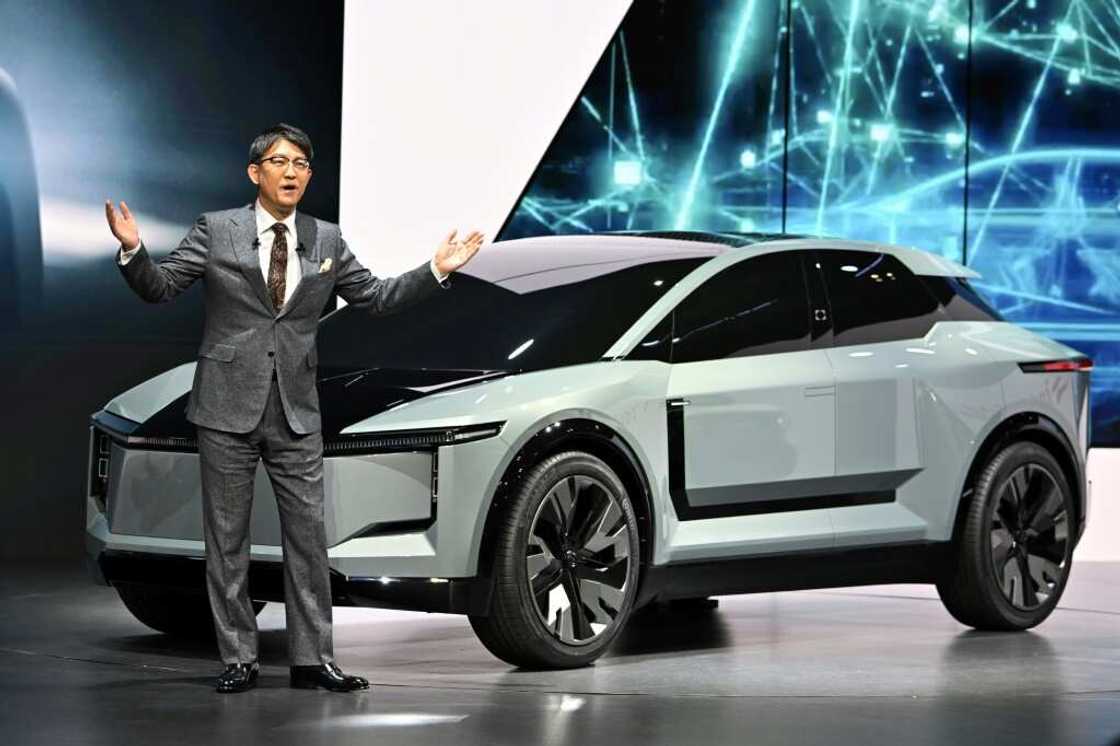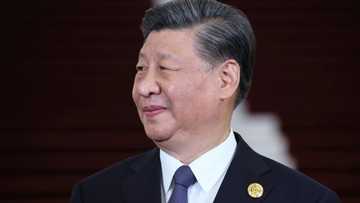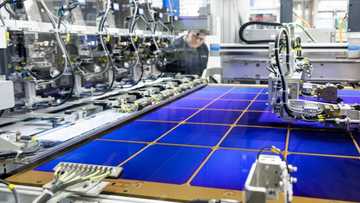Japan auto show returns, playing catchup on EVs

Source: AFP
PAY ATTENTION: Click “See First” under the “Following” tab to see Legit.ng News on your Facebook News Feed!
Tokyo's rebranded auto show returns this weekend just as China looks set to overtake Japan as the world's biggest car exporter after Toyota, Nissan and others got stuck in the electric vehicle slow lane.
Since the last edition in 2019, the EV market in Japan has been sluggish and the country's automakers have been late to tap a growing appetite elsewhere.
Just 1.7 percent of cars sold in Japan were electric in 2022, compared with around 15 percent in western Europe, 5.3 percent in the United States and nearly one in five in China.
Japanese firms fared badly in a recent Greenpeace ranking on phasing out internal combustion engines, with Suzuki last and Toyota -- the world's biggest carmaker by revenue -- third from bottom.
Fewer than one in 400 Toyotas sold are EVs, the environmental group said.
Japanese manufacturers have long bet instead on hybrids that combine battery power and internal combustion engines, an area they pioneered with the likes of the Toyota Prius.
Foreign EVs "feel like products from the previous generation", Chinese car industry employee Gao Yulu, 32, told AFP at a recent auto show in Beijing.
"For Japanese brands, there are very few products to begin with. And their product strength isn't strong in terms of price and performance," she said.
For Mitsubishi Motors, the debacle in China is such that this week it announced it was halting production there.
Like in Europe and North America, Chinese EV makers are now even trying to gain a foothold in Toyota and Nissan's backyard.
Teaming up with 'Godzilla'
One of the only three foreign auto firms exhibiting in Tokyo will be BYD, which is vying with Elon Musk's Tesla to become the world's top-selling EV maker.
Although export figures are skewed by Japanese companies having major factories abroad, becoming number-two to China this year, as expected, will still hurt for an industry that itself was once the disruptor, experts said.
"It's kind of reminiscent of what happened to Japan in the 1980s, when they started exporting a lot of automotives," said Christopher Richter, an auto analyst at CLSA.
Japanese automakers have vowed to up their game, with Toyota aiming to sell 1.5 million EVs annually by 2026 and 3.5 million by 2030. It has invested heavily in battery technology.
On show in Tokyo will be a number of new Japanese EVs, although they will mostly be concepts such as a car and motorbike from Honda made of recyclable acrylic resin.
The show has also been reborn as the Japan Mobility Show to expand its scope beyond cars to include areas such as robots, software and batteries.
This has more than doubled the number of exhibitors in the show, which opens to the public on Saturday, to 475 including an armada of start-ups.
The trade show will also feature a special "Emergency and Mobility" zone devoted to transport solutions after natural disasters, with displays of robots, drones and self-propelling stretchers.
To hammer home the point, organisers have teamed up with the new "Godzilla" movie.
"In Japan, we have... many natural disasters in Japan, and people's lives and towns have been destroyed," said Jun Nagata from the organising committee.
"Because of global warming this year, it's like Godzilla coming to cities," he said.
Source: AFP





